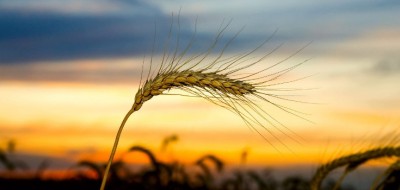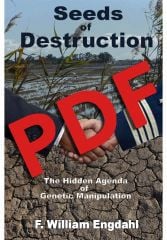Moscow Accused of Inciting “Hunger Games”: The World Will Not Face Wheat Crisis in the Wake of the “Ukraine Deal”

All Global Research articles can be read in 51 languages by activating the Translate Website button below the author’s name.
To receive Global Research’s Daily Newsletter (selected articles), click here.
Click the share button above to email/forward this article to your friends and colleagues. Follow us on Instagram and Twitter and subscribe to our Telegram Channel. Feel free to repost and share widely Global Research articles.
***
Since Russia announced on July 17 that it would not renew its Black Sea Grain Initiative agreement brokered by Turkey and the UK, to allow Ukraine grain exports with safe passage from Odessa and two other Ukraine Black Sea ports, mainstream Western media claim that the refusal will create global starvation and soaring food prices.
A Ukrainian strike on the major bridge linking Russia’s mainland with the Crimean Peninsula, timed precisely for the ending of the grain agreement provoked a massive retaliation strike by Russian forces severely damaging the Odessa and nearby grain shipping ports. What is indeed the situation with food supplies from the “Breadbasket of Europe” as Ukraine used to be called?
On July 19 the Indian Express carried the headline, “World facing prospect of ‘hunger games’ as China hoards grains and Russia withdraws from deal.”
They stated further,
“A hunger crisis could be in store for the world next year due to the withdrawal of Russia from a major food grain deal with Ukraine, the impact of the food-grain hoarding by China, the world’s largest consumer of rice, warned an analyst.” The LA Times was similarly alarmist, “Russia halts deal allowing Ukraine to export grain, in a hit to global food security.”
CNN, Yahoo and other Western media carried similar alarmist stories. None of them bothered to go into detail on the current situation. It is far less alarming than claimed. The world may face grain shortages soon, but it will not be because of Russia’s actions in Ukraine.
On July 19 two days after the cancellation, world grain futures prices spiked higher by some 8%, on news that Russia now considered any ship landing at Odessa or other Ukraine ports to be suspected weapons freight and a target for Russian missiles. Western media has since claimed that Russia is causing world potential famine by ending the Ukraine grain export deal. What are the actual facts?
Why Russia Stopped It
The Black Sea Grain Initiative deal was agreed in July 2022 following charges that Russia’s military actions in Ukraine were creating severe grain problems for African and other poor countries. Russia agreed, with UN participation, to a deal in which a safe Black Sea passage from Ukraine grain ports such as Odessa would be guaranteed by Russia in return for the West’s lifting sanctions on export of Russian wheat and fertilizers, including lifting the SWIFT ban for the major Russian state grain export bank.
Russia, Ukraine, Turkiye and the United Nations reached the agreement on July 22, 2022 to provide a humanitarian maritime corridor for ships carrying food and fertilizer exports from Ukrainian Black Sea ports. On May 18, 2023, Russia extended the deal, called the Black Sea Grain Initiative, for 60 days, until July 17.
There was a major problem. The West refused to honor the Russian part of the deal. According to the state Russian Sputnik news portal,
“The deal is an integral part of a package agreement. The second part — the Russia-UN memorandum, designed for three years — envisions the unblocking of Russian exports of food and fertilizers, the reconnection of the Russian Agricultural Bank to SWIFT, the resumption of supplies of agricultural machinery, spare parts and services, the restoration of the Togliatti-Odessa ammonia pipeline (which Ukraine sabotaged in June-w.e.), and a number of other measures. Moscow says this part of the package agreement has not yet been implemented.”
On July 17, the day Russia announced it would not renew the deal, Ukraine, aided by US and UK intelligence, launched a deadly attack on the sole bridge linking Crimea, where the Russian Black Sea naval fleet is based, to the Russian mainland.
The vehicle spur was badly damaged by a Ukrainian naval drone and two civilians were killed, with a third in a coma. Moscow launched deadly reprisals over the next several nights with major bombing attacks that destroyed much of the port infrastructure of Odessa and other Black Sea ports nearby.
Grain terminals and port infrastructure in Ukraine were targeted in Russian attacks on the night of July 18 and 19, causing major damage that will take at least a year to fully repair, according to the Ministry of Agrarian Policy and Food of Ukraine.
A significant portion of infrastructure of the port of Chornomorsk was knocked out, and 60,000 tons of grain also was destroyed. Grain infrastructure of international and Ukrainian traders and carriers such as the Luxemburg-Ukrainian Kernel, Viterra, a part of the huge Swiss-based Glencore group, the world’s largest commodity trader, and the French CMA CGM Group were damaged.
Moscow also charges that not only did the UN and the West refuse to honor the Russian part of the agreement. The West was also using the protected ships to deliver NATO and other weapons to Ukraine to feed the war, hardly a humanitarian act.
Wheat for the EU?
While the West claimed that the Russian blocking of ship traffic from Odessa and other Ukraine ports was creating a humanitarian disaster in Africa and other poor countries, the wheat, as well as Ukraine corn and sunflower oil, was not ending up in the countries of the poorer South. Instead, until a major farmers’ revolt in Poland, Bulgaria, Romania and other EU countries forced Brussels to temporarily ban import of the very cheap Ukraine grain. According to the UN, the EU was the main beneficiary of the Black Sea Grain Deal: 38% of all Ukraine grain was sent to Europe despite the fact that the EU is a net exporter of wheat. Another 30% went to Turkiye, and 24% to China. A mere 2% went to nations of the Global South.
In April, facing major farmer revolt against a flood of cheap Ukraine grain imports, Poland, Slovakia, Hungary and Bulgaria introduced a temporary ban on Ukraine’s agricultural products after failing with their repeated demands that the Brussels EU impose a general ban and allow the grain to go to Africa and other states according to the original agreement.
Some Hard Facts from USDA
While most US Government statistics are today not worth much, owing to decades of political manipulations, those of the US Department of Agriculture for global wheat production are generally regarded as fairly accurate as the world grain cartels depend on the data to price the grain. In their report of July 12, just prior to ending the Russian Black Sea renewal, the USDA report, titled Grain: World Markets and Trade, noted the following: “As the 2022/23 trade year draws to a close, Russia has solidified its standing as the world’s top wheat exporter.” They noted, “Russia is estimated to export 45.5 million tons in 2022/23. Its primary destinations are in the Middle East, North Africa, and Central Asia… Russia wheat exports are forecast to reach another record of 47.5 million tons in 2023/24.”
The USDA report continues, for Ukraine where the fighting has impacted their best grain growing regions, “Ukraine planted area is down significantly as a result of the war with Russia. Production in 2023/24 is forecast at 17.5 million tons, the smallest crop in over a decade. With sharply reduced supplies and uncertainty surrounding the future of the Black Sea Grain Initiative , 2023/24 Ukraine wheat exports are forecast lower at 10.5 million tons, down over 40 percent from the pre-war average. While the BSGI helped Ukraine export 16.8 million tons of wheat in 2022/23, 39 percent of wheat moved outside of the grain corridor (primarily via land shipments to Eastern Europe).”
If we then subtract the 6.6 million tons wheat that went to the EU over land routes, then some 10.2 million tons of Ukraine grain is now not available to world markets via the Black Sea. However that almost exactly equals the volume of Ukraine wheat that was flooding the EU local markets in the past year.
Russia Pledges Grain to Africa
On July 27 at the Second Annual Russia-Africa Summit in St. Petersburg, Russian President Putin pledged that Russia would provide grain for free to select African countries that had been receiving Ukraine grain:
“We will be ready to provide Burkina Faso, Zimbabwe, Mali, Somalia, Central African Republic and Eritrea with 25-50,000 tons of free grain each in the next 3-4 months.”
The NATO and mainstream Western media are manipulating a one-sided narrative to blame Russia for something their own corrupt actions brought about. The Russian suspension of the grain deal, which they declare ready to reopen providing there are guarantees of the Russia part being met, is not creating a global catastrophe. What is far more dangerous to the world are the deliberate actions of the EU and Biden Administration to impose severe cuts to world fertilizer production under their so-called Green Zero Carbon Agenda.
*
Note to readers: Please click the share button above. Follow us on Instagram and Twitter and subscribe to our Telegram Channel. Feel free to repost and share widely Global Research articles.
F. William Engdahl is strategic risk consultant and lecturer, he holds a degree in politics from Princeton University and is a best-selling author on oil and geopolitics.
He is a Research Associate of the Centre for Research on Globalization (CRG).
 Seeds of Destruction: Hidden Agenda of Genetic Manipulation
Seeds of Destruction: Hidden Agenda of Genetic Manipulation
- Author Name: F. William Engdahl
- ISBN Number: 978-0-9879389-2-3
- Year: 2007
- Product Type: PDF File
Price: $9.50
This skilfully researched book focuses on how a small socio-political American elite seeks to establish control over the very basis of human survival: the provision of our daily bread. “Control the food and you control the people.”
This is no ordinary book about the perils of GMO. Engdahl takes the reader inside the corridors of power, into the backrooms of the science labs, behind closed doors in the corporate boardrooms.
The author cogently reveals a diabolical world of profit-driven political intrigue, government corruption and coercion, where genetic manipulation and the patenting of life forms are used to gain worldwide control over food production. If the book often reads as a crime story, that should come as no surprise. For that is what it is.

